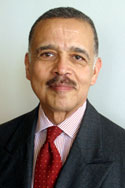ARCHIVES
OF EDITORIALS
October 30, 2003
Vote wisely
The announcement of Louise Day Hicks’ death
stirred painful memories for those old enough to remember. For
about 20 years, from 1960 to 1980, she was Boston’s symbol
of racial intolerance. In a city that was an aggregation of ethnically
homogeneous neighborhoods, she was the doyenne of Irish hegemony.
Her battlefield was the Boston public schools. There was a delusion
in South Boston, a traditional Irish working class enclave, that
they owned the public schools located there. Her defense of neighborhood
schools attracted support from West Roxbury and other areas intent
on excluding the children of the growing black population.
Ironically, blacks were not opposed to the concept of neighborhood
schools. The problem was that the financial resources of the school
system were inequitably distributed. The schools in Roxbury were
allowed to deteriorate, experienced teachers were less likely
to be assigned there, and books and school materials were scarce.
Hicks launched her political career by being elected to the school
committee in 1961. By 1967 she decided that she had the political
strength to be elected mayor. Fortunately for Boston she was defeated
by Kevin White. During her heyday, a political defeat was merely
preparation for the next race. In 1970 she was elected to the
US Congress from the 9th Congressional District, which includes
most of Boston’s black community.
The late Joe Moakley ran as an independent in 1972 so he could
face Hicks head on in the final election. Although Moakley, a
son of South Boston, lost to Hicks there by 2,428 votes and he
lost West Roxbury by 4,500 votes, he out-polled Hicks by 6,878
votes in Roxbury and Mattapan. That margin, plus the votes from
the suburbs, put Moakley over the top. This defeat essentially
ended Hicks’ political career.
Despite her exit from the political scene, Hicks’ successors
continued the battle to segregate Boston’s schools until
the matter was resolved by a federal district court opinion in
1974. Because of the stubborn refusal of the school committee
to comply with the law, precious dollars had to be spent to finance
the city’s school busing program required by the court.
Blacks who fought in those battles are profoundly aware that the
conflict was more the result of ethnic competition for power and
control rather than mere racial animosity. Fortunately, there
has been a change in Boston. The overt expression of racial hostility
has lessened, but there is little to indicate that Boston has
really entered an era of power sharing.
Many older blacks who remember well the Louise Day Hicks era are
concerned that those too young to have experienced those days
will be deceived by today’s superficial spirit of racial
détente. This concern is fueling support for Charles Yancey
in the city council race against Ego Ezedi. There is a fear that
young politicians will be beguiled by the new spirit of racial
courtesy and forget that the ethnic competition for power is still
alive and well.
There is one lesson from the Hicks era that is irrefutable. Voting
is important. The black vote for Moakley in 1972 offset his losses
in Irish strongholds and brought to an end the era of Hicks as
a potent political force.
A politically involved black community will attract competent
young candidates to present themselves for public office. But
to be effective they will have to absorb the lessons learned by
their elders.
Home
Page

